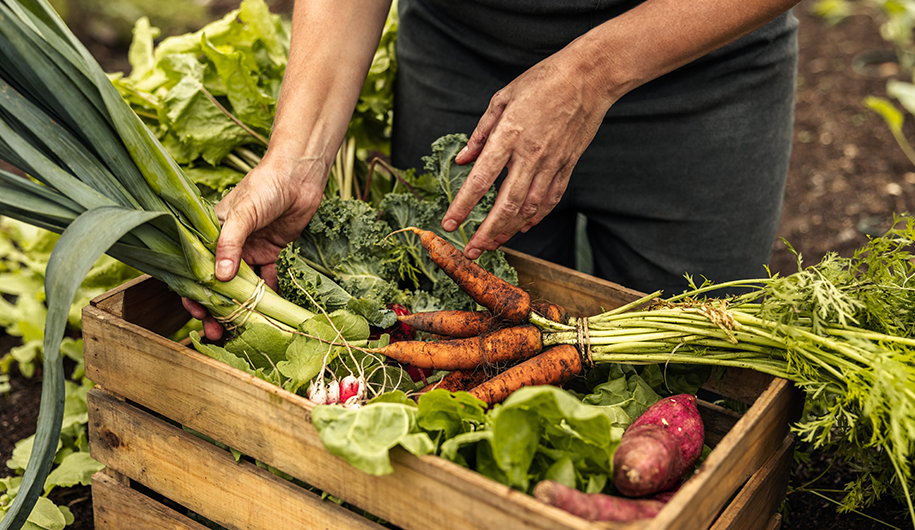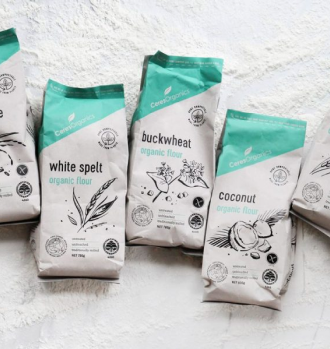
This is a question that we commonly see and get asked. In a world that is becoming increasingly conscious of food choices, not just in the way it impacts our health, but the environmental impact, community impact and financial impact, we are increasingly being driven by our values.
Trends towards natural and organic have gained popularity (and there is a difference between natural and organic – have a look here for an explanation). Producers, growers and manufacturers are listening to what we are asking of them and creating food products to align these values.
The health explosion has seen conventional practices in the spotlight and needing agility and being able adapt to these trends is becoming non-negotiable. Organics is at the forefront when it comes to ticking the boxes with what aligns with consumers. Delivering authentic products while demonstrating not only that we care for the environment, people and communities in has become an increasingly important component when we look to what we decide to eat.
So then, what’s the difference?
Organic food is able to set a strong foundation, encompassing health, environmental awareness, integrity, authenticity, transparency and social awareness.
The way we view it, organic food is grown the way nature intended – without the use of synthetic (artificial) additives; this includes pesticides, herbicides, man-made fertilisers and genetic modification.
Conventional farming relies on the use of chemical intervention as a way to fight off pests and weeds. In other words they use synthetic forms of pesticides, herbicides, and fertilizers. On the flip side organic and regenerative farming practices relies on more natural principles like biodiversity and composting instead to produce healthy, abundant food.
Additional to this, organic production is not simply just avoiding chemical inputs, or swapping synthetic inputs for natural (although that does play a role!). Organic farmers have innovative techniques, such as crop rotations and the use of compost making it more economically sustainable in today’s world.
But it also has an impact on our soil
Looking deeper into the soil, non-organic farming practices can strip nutrients from the soil, which consequently has adverse effects on the environment, and our health. If we think about the health of the soil and having the presence of these chemicals, it sets a foundation for growth in this sort of environment, leaving worrying traces of pesticides on what is grown.
Farmers and producers are becoming innovative with the way that they grow, creating chemical free ways to manage their crops with natural alternative forms that can keep the richness of the soil and plants without compromising health; and we mean health in its widest form, in terms of humans, soil and the environment.
And also the nutritional makeup of our food
Moving into the nutritional density of organic food, in the past people have questioned the validity of whether or not organic food does have more nutritional emphasis – and studies have proven it does. It has been reported that there are significant differences in the presence of a range of antioxidants, between 19% and 69% in organic food.
This really demonstrates rate clear and wide-ranging differences between organic and conventional fruits, vegetables and cereals. Factors such as production of antioxidants to fight pest attacks natural, can be contributed to their high nutritional value. This occurs due to the lack of protection from chemical sprays, meaning they inherently create more antioxidants to fight them off without the use of external applicants. Organic varieties are being bred for toughness and not being overfed with artificial fertilisers also increasing levels.
However, not all "organic" is the same - so make sure you know how to choose
There are so many products out there that have the label "Organic" but how can you can tell what is authentic or not?Certification by a recognised independent industry body is the consumers’ assurance of the quality, food safety, sourcing integrity and validity of claims of a product. We are proud to say that our products carry ‘the stamp of approval’ from some of the most highly regarded certifying organisations in the world.
It all starts from the very source — we deal only with suppliers (organic farms, manufacturers and food companies) that are certified organic to worldwide leading standards such as the EKO Quality Mark of SKAL in the Netherlands, the JAS organic seal in Japan, the USDA organic label in America, and similarly in other countries where we source products from. We also carry a limited amount of IFOAM-accredited products for use in manufacturing. IFOAM stands for the International Federation of Organic Agriculture Movements and is the worldwide umbrella movement that provides a forum for more than 750 member organic and related organisations.
In New Zealand, our certifier of choice is BioGro. On every Ceres Organics you will see the BioGro logo with our certification number (#4310). This is your assurance that our products have been certified organic in accordance with BioGro standard regulations, set in accordance with the expectations of the New Zealand governmental regulations.
While there has been discussion on what the difference between organic and non-organic, going organic means more than just foods that are pesticide free. Most importantly, Organic farms help promote better soil quality by not using chemicals to strip away the foundation layers, therefore promoting not only better tasting produce, but preserving our environment from further degradation.





